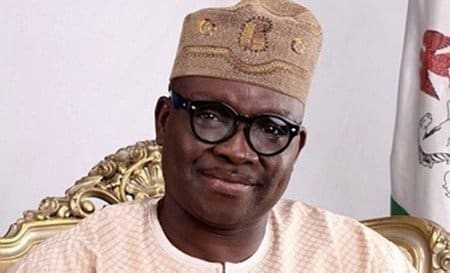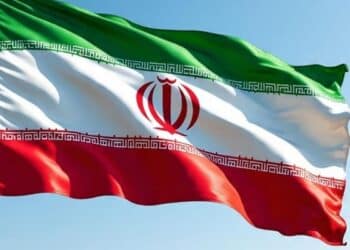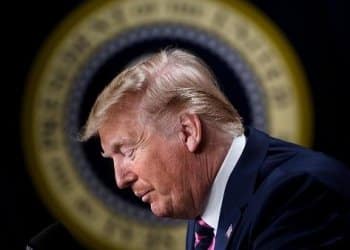EKITI State Government has said the Attorney General of the Federation, Alhaji Abubakar Malami (SAN), cannot use the report of a military panel set up to probe alleged rigging of the June 21, 2014 governorship election in the state to prosecute anybody.
In an open letter sent to Malami, who is also the Minister of Justice by the Commissioner for Justice, Mr Owoseni Ajayi, in Ado-Ekiti on Wednesday, Ekiti State Government also said the propriety or otherwise of the election had been decided from the tribunal level up to the Supreme Court and that any other panel, whether military or otherwise, could not sit on appeal on any matter already decided by the apex court.
Owoseni’s letter was entitled “Open letter to the Hon. Attorney General of the Federation, Alhaji Abubakar Malami (SAN) on the alleged plans to prosecute prominent members of the Peoples Democratic Party (PDP) in Ekiti State for alleged rigging of 2014 Ekiti State gubernatorial election.”
Owoseni, who posited that while the AGF was vested with prosecution powers under Section 174 of the Constitution of the Federal Republic of Nigeria 1999 (as amended), noted that the powers were neither absolute nor unlimited and that it must be exercised with due caution and regard for the rule of law.
He added that the sanctity of the judicial process and respect for the principles of federalism must also be adhered to.
“Therefore, unless an alleged criminal act constitutes an offence under a federal enactment, the Attorney General of the Federation will definitely be acting ultra vires by any purported move to prosecute an alleged offender before any state or federal court in Nigeria without a fiat by the Attorney General of the respective state, vested with constitutional jurisdiction to prosecute criminal matters under the state law.
“Although the Electoral Act 2010 (as amended) is a federal enactment, which creates several offences triable only in the magistrate or high court of a state in which the offence is committed, prosecution of such offences can only be undertaken by the Independent National Electoral Commission (INEC), upon a recommendation made to it by an Election Petition Tribunal for the prosecution of any person or individual disclosed in an election petition or upon findings, after thorough investigation by the police,” he said.
Owoseni urged Malami to take note of the provisions of Sections 149 and 150 of the Electoral Act 2010 (as amended).
“Section 149. The Commission shall consider any recommendation made to it by a tribunal with respect to the prosecution by it of any person for an offence disclosed in any election petition.
“150 (1) An offence committed under this Act shall be triable in a magistrate court or a high court of a state in which the offence is committed, or the Federal Capital Territory, Abuja.
(2) A prosecution under this Act shall be undertaken by legal officers of the Commission or any legal officer appointed by it,” he averred.
Owoseni went further that the findings, reports and recommendations of the Nigerian Army Board of Inquiry did not emanate from an Election Petition Tribunal as specified by the Electoral Act.
He added that as such any recommendation by the military panel could not be the basis or grounds for criminal prosecution of anybody.
Owoseni posited further that the Supreme Court, in the suit number SC 113/2015 APC vs PDP and 4 others, had on April 14, 2015 delivered a judgment in which it affirmed the regularity of the election and the validity of the results as declared by INEC.
He added that INEC, the statutory body vested with the conduct of elections in Nigeria, was part of the suit up to the Supreme Court level and vigorously defended the regularity of the 2014 Ekiti State governorship election.
Owoseni advised the AGF to resist any undue political pressure to act contrary to the provisions of the laws of the land.









